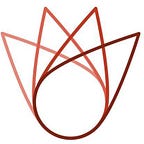A 100 days of jamlab and 2019 elections
How Quote This Woman+’s idea of echoing more women’s voices in media is coming closer to reality
By Kathy Magrobi
Quote This Woman+ (QW+) is a non-profit working in the media and gender space. In a world where a woman’s voice is likely to be heard in the media only once for every four times that a man’s is, our role is to make it really easy for journalists and producers to close the gender gap and interview more women. We do this by curating a database of kick-ass women — and similarly marginalised — experts, thought-leaders and change-makers across a variety of different fields, and by actively encouraging journalists to use our experts when they’re looking for someone new to interview or quote.
Getting chosen for the jamlab accelerator programme helped turn QW+ from a fairly hazy concept into a viable, active media/gender programme in just a few months — and right in time for the 2019 elections. By the time QW+ went live, the South African National Editor’s Forum (SANEF) had pledged support and a handful of key journalists had promised to use the database as much as they could. There were just over thirty women+ experts on the database, mainly related to land and health, thanks to initial support offered from Ruth Hall from the Institute of Poverty, Land and Agrigarian Studies (PLAAS) and from Laura Lopez Gonzalez from Bhekisisa. The small team of QW+ volunteers sat at our laptops, holding thumbs that healthcare and land would dominate the headlines in the build-up to elections; that newsrooms would notice us, that there’d be a scramble for fresh voices, and that, green and under-resourced as we were, we wouldn’t make any colossal bloopers.
How did the jamlab process help QW+ move from the abstract to the actual? It got us to stop thinking as “wannabe development theorists” and to roll up our sleeves like gutsy entrepreneurs: to develop, and test, a minimum viable product and to go ahead and launch it. It made us hungry for meaningful market information and held us accountable for responding as best and as quickly as we could to what we discovered.
Speak to any jamlab fellow and they’ll rave about course co-ordinator Indra de Lanerolle’s media entrepreneurship lectures. But this is only one of three equally strong pillars holding up the programme. The second is the series of conversations with the movers and shakers in the traditional and digital media space, and the third is the peer-support offered by the other digital media entrepreneurs on the programme. Sometimes there is nothing more powerful than a word of caution or encouragement from someone who is walking in shoes not too different from your own to keep you from going off track.
By mid-April, QW+ had built its database up to one hundred experts across twenty categories and was answering a significant number of media queries a week.
We’d also started to realise that journalists who’d used us once became repeat users, and we’d picked up on a trend of journalists approaching us for help in tracking down experts beyond the ambit of our database. This was a way we could get onto the radar of news editors and producers : by becoming an additional resource that beleaguered newsrooms and producers could turn to for help in finding fresh life for their tired contacts directories. And if the new experts were women, or similarly marginalised or othered? As long as we could prove their credentials, we didn’t run into any problems.
So we started finding women architects. Women who’d run against Caster Semenya. Women Sino-Africa experts. Experts on African hair. All while still promoting our election- related experts and encouraging journalists across the spectrum to access the names on our database.
By 10 June 2019, QW+ had been live for 100 days. And already it has been used in print, online, on TV and radio talk shows, and for TV and radio news — by South African journalists and foreign correspondents reporting on South Africa for a variety of media in the USA, Europe and the UK. The project has sent out five newsletters profiling in total almost 30 women+ political analysis. By the time the last newsletter went out, the subscriber list for this was close to 100 journalists.
Given our small numbers (three volunteers), the natural attrition that one would expect of sources regardless of gender (e.g experts being unavailable for specific interview slots) and factoring in the reluctance of some women sources to talk to broadcast media, we’ve been satisfied with our stats.
According to our initial research, we estimate that just over half of QW+ media queries directly result in the women we recommend being quoted in the media. The ripple effect of our lobbying is currently beyond our ability to measure. The next challenge for QW+ is to get more volunteers on board, and to raise funds for long term sustainability.
Visit www.quotethiswoman.org.za for more info, and email kathy@quotethiswoman.org.za if you’re able to help.
Want to stay up to date with the latest journalism and media innovation news from the African continent? Subscribe to our newsletter.
